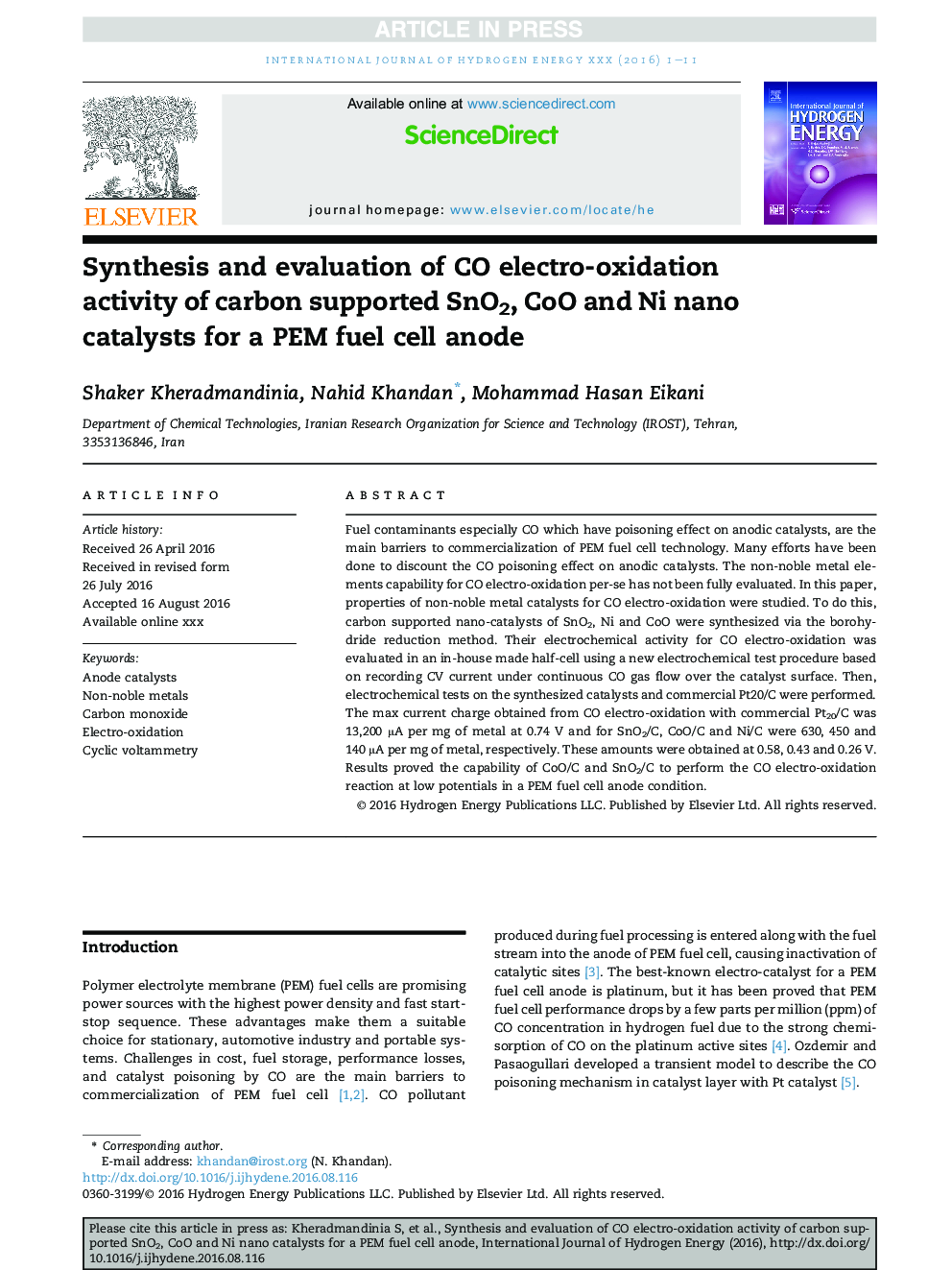| Article ID | Journal | Published Year | Pages | File Type |
|---|---|---|---|---|
| 5147158 | International Journal of Hydrogen Energy | 2016 | 11 Pages |
Abstract
Fuel contaminants especially CO which have poisoning effect on anodic catalysts, are the main barriers to commercialization of PEM fuel cell technology. Many efforts have been done to discount the CO poisoning effect on anodic catalysts. The non-noble metal elements capability for CO electro-oxidation per-se has not been fully evaluated. In this paper, properties of non-noble metal catalysts for CO electro-oxidation were studied. To do this, carbon supported nano-catalysts of SnO2, Ni and CoO were synthesized via the borohydride reduction method. Their electrochemical activity for CO electro-oxidation was evaluated in an in-house made half-cell using a new electrochemical test procedure based on recording CV current under continuous CO gas flow over the catalyst surface. Then, electrochemical tests on the synthesized catalysts and commercial Pt20/C were performed. The max current charge obtained from CO electro-oxidation with commercial Pt20/C was 13,200 μA per mg of metal at 0.74 V and for SnO2/C, CoO/C and Ni/C were 630, 450 and 140 μA per mg of metal, respectively. These amounts were obtained at 0.58, 0.43 and 0.26 V. Results proved the capability of CoO/C and SnO2/C to perform the CO electro-oxidation reaction at low potentials in a PEM fuel cell anode condition.
Related Topics
Physical Sciences and Engineering
Chemistry
Electrochemistry
Authors
Shaker Kheradmandinia, Nahid Khandan, Mohammad Hasan Eikani,
